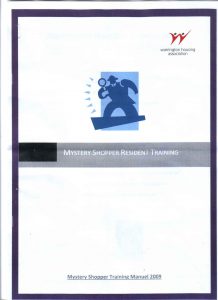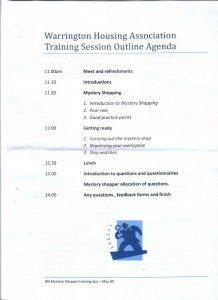Thanks to Plus Dane for hosting
1 Presentation and discussion
A new approach to involvement at Wythenshawe Community Housing Group – Dean Slavin, Housing Manager at WCHG
In reviewing their approach to involvement, WCHG have combined community insight and digital methods with face to face contact. Dean will take us through the changes in their approach and their reasoning and some hints and tips for achieving.
Followed by discussion/Q&A/ sharing of information on approaches.
Here is the presentation from Dean:
WCHG Snet 3rd October 2017
The WCHG fits with the Councils strategy “our Manchester”
WCHG asked:
What can you do to support your community?
What can we do to help you with this?
WCHG chose Benchhill as a pilot for a new way of engaging in neighbourhoods – this was a Manchester pilot and is now being rolled out across their stock at WCHG.
Dean is also engaged in lessons learnt from that pilot in other parts of Manchester as part of devolution.
Staff are now working with other agencies at Benchill – they are getting to hear what others are doing and are better informed to make links with and for the community – they have a strong partnership and funding for this.
It started with a huge door knock – over 1000 homes
Met a Mum’s group – had a conversation, they did not want formal meetings they wanted something more action orientated which they could pace and lead.
They went out with staff to ask:
Tell us about your area and what is worrying you?
Neighbourhood plans have been built on that, including actions on off-road bikes.
The residents came up with the plan, WCHG supported the plan’s delivery.
Love (living in) Benchill – took hold
New involvement structure
Tenants went to Trafford hall with staff for 2 days to learn from this and decide how to replicate the best bits for the wider neighbourhood offer.
Staff from across the business attended to get a better understanding.
They decided to have a 2-year strategy
Get it in place in year one
Refine it in year two
TARA’s
Were 12 TARAs, now there are 5
WCHG looked at what TARs were achieving for themselves and for WCHG
£250 and other support with funding applications for local grants are given.
Most did not take part estate walkabouts, clean-up days, door knocking to find out what their community needed.
This is what is in the new requirements and constitution.
NB
Before WCHG did anything – they checked out their plans with local politicians so they were on side with changes to funding requirements for TARAs/Community associations
Dean is going to send through the new resident involvement strategy and new TARA constitution/charter – which will appear here when it comes in
North Moor TARA
The tenants asked to book and hire the local café for a morning – they invited other resident for a breakfast sarnie and coffee and to come in and chat to them
They asked about local priorities- this is being sued as the model for the new TARAs.
They have a constitution which is just half a side of A4.
WCHG were keen to hear the everyday voice of tenants and to capture that voice
They want to make use of street reps and social media and surveys and events to capture information and find quick wins.
- Presentation and Discussion – new data protection requirements
Clare Sanderson, Director at IG Solutions, Liverpool Limited
The GDPR will impact on tenant engagement in Mystery shopping, call auditing and other direct contact.
Clare shared information about the new requirements and participated in Q&A.
This took up a great amount of the meeting.
Here is the presentation, if you follow the notes slides – you will see the detail of what was discussed there.
(The presentation has been split – it had lots of pics – bu the content and notes slides remain 3 pics removed only for Clare 2)
Clare Sanderson GDPR with notes 1
Clare (2) – some pics removed due to size of dcument
Clare – Cyber security
Clare – steps to GDPR prep
Some of the main points were:
- Holding and sharing data – only if you have permission to do this and no comment is not consent – you need real consent to share
- You have to let tenants know what you hold and what it is used for
- Inform the Info commissioner within 72 hours is you breach – or the circumstances could be worse
- Need to do a privacy impact assessment
- Tenants will need to opt out or opt in
- Ideally tenants need to sign up – I give you permission to use my data for ……
- Consent must be in plain English, specific and there is a special version for children – you have the right to be forgotten as a tenant but not completely as some data must be held to manager the tenant
- You need to be able to demonstrate consent – pref. give everyone a leaflet and ways to withdraw from some of the usage of data
- This might impact on text messages too – does not need to be e mail and paper only
Clare took away a few things to look, the answers will appear here when they come in:
- Government Leaseholder Consultation – Yvonne
The government is currently consulting on the power of recognised resident groups to request information from/about other residents. Consultation closes on 19th September.
Yvonne Presented the information which generally discussed how we would approach being approached by tenants asking for other tenants – leaseholders data who lived in their block.
We decided to discuss leaseholder consultation at a future meeting when the information from this consultation has been made more, in the meantime we will look at the different ways in which leaseholders get engaged at the next meeting
DCLG Consultation Leasehold TAs
s130_HPAct_consultation
On the couch
4 Leeds CC Digital use – questionnaire
Ian asked everyone to write down some quick examples of what ‘digital’ innovation they are progressing in their organisations – doesn’t have to be ‘involvement’ related, anything about worker smarter as an organisation and offering something more to tenants
He had an IT challenge session coming up in Leeds, trying to outline the vision for all matters digital, and would love to be politely disruptive by sharing how others are innovating.
Leeds are also doing some academic research with the Barnsley Academic research unit on involvement.
- The new Value for money standards – new tenant engagement requirements
The draft new standard is out to consultation until xmas
It is metric based and suggests purely financial management.
It is likely that the final new standard will be available from April 2018.
VFM in tenant involvement will be covered within the involvement standard
- Best practice sharing – post Grenfell
This had been a major item at the previous meeting
Ian has been invited to a meeting at Trafford Hall
He was suspicious about – it was a paid conference
To set up a High-Rise board – YD to circulate
Leeds are reviewing the need for Electronic Notice boards in their blocks
– similar to that provided by Adactus
Most landlords have been swapping or removing door mats
and other tenant items in the communal areas
Some are looking at Estate or block champions – Trafford Housing trust
Others are looking at rendering plastic piles which will melt in a fire
Yvonne will circulate information on the NHC conferences – there may be opportunities to support this for members as NHC are looking for facilitators – YD to find out more – not required – NTOs are doing this for CLG and conversation is more general and not H&S based.
YD mentioned the 29th Nov Tenant Panel conference with the NHC which will be based on scrutiny, Tenants Panel and actions taken post Grenfell
7 Task and Finish Groups
Tracy Jagger at Habinteg is considering task and finish groups and mystery shopping, she asked the group to send her terms of reference / guidance on this.
WHA to send Mystery shopping guidance – see below – scan copy only available





Yvonne will also dig out some information for Tracy.
We discussed the movement to a more task and finish approach and decided to speak about this at the next meeting from a social media perspective
2.30 Close
Future meeting dates:
Thursday 18th January 2018 – Connect HA in Dewsbury – opposite the train station
For the next agenda
- Community investment
- Social media – emerging practices
- Leaseholder consultation
Suggestions for this or future agendas include
- Rant and Rave tool for Customer Insight – Together Group – can’t do Jan – will do April – dates to be confirmed
- HACT – new tenant satisfaction/insight tool to be invited




